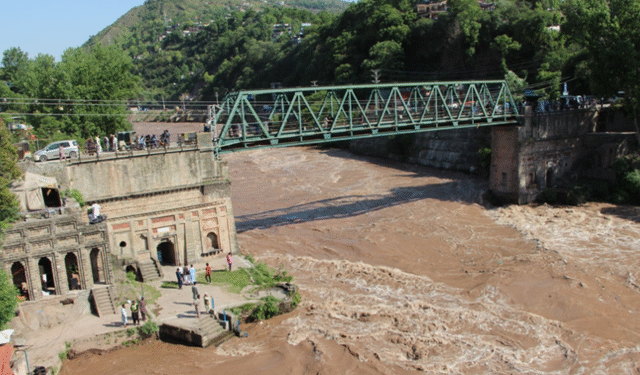Residents of Pakistan-occupied Kashmir (PoK) are on high alert as the Jhelum River’s water level unexpectedly surged, causing flood-like conditions in regions including Muzaffarabad and Chakothi.
Locals alleged that the water was released from the Indian side without prior notice, intensifying fears and leading to emergency evacuations along the riverbanks.
Authorities in PoK issued warnings and advised residents to relocate to safer areas. The warnings have brought panic to the affected communities, with announcements made from mosques urging people to stay vigilant. This development follows India’s recent suspension of the Indus Waters Treaty, a move linked to the aftermath of the Pahalgam terror attack that claimed 26 lives.
India’s government has signalled its intent to maximise its use of water resources from the Indus, Jhelum, and Chenab rivers, further complicating the dynamics of the bilateral treaty originally brokered by the World Bank in 1960. The treaty had allocated control of the eastern rivers (Sutlej, Beas, and Ravi) to India, while granting Pakistan rights to the western rivers (Indus, Jhelum, and Chenab). As tensions escalate, the region faces both geopolitical and environmental challenges.





























